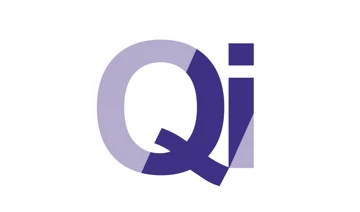Key achievements
BROSET Tool project
Project aims
- Patient Safety - 95% of ward staff trained in Broset Checklist tool
- Patient Experience - 95% of patients have a copy of their crisis plan and care plan and Patient Recorded Experience Measure (PREM) score 8/10 and above
- Clinical Effectiveness - Improved clinical outcomes across care groups from 41% to 75% CROM (HONOS) from 2.7% to 50% PROM (REQOL).
Progress
- We have rolled out the pilot
- We are meeting to wrap up the pilot
- We plan to implement across all inpatient units from May 2021 up until March 2022.
Current state
- Our current position is 75% of staff trained, the range is between 62% and 91% across the 3 care groups, acute and forensic wards and older adults. Tunbridge road has been excluded due to COVID and other priorities they did not take up the Broset training (halted at 15% trained). We will not be including the community rehab teams in the 21 / 22 roll out due to lack of need – they do not have violence and aggression on their units.
Challenges
- We initiated the pilot during the peak of the pandemic where clinical services were short staffed, we have had good engagement with the pilot, implementing the BVC in our 2 inpatient rehab units has been challenging mainly due to minimal incidents of aggressive / verbal abusive behaviours.
Liaison Psychiatry project
Initial investigation
Group discussions with all levels and stakeholders of the KMPT Liaison Service led to a consensus that the number one priority was Staff Wellbeing with a focus point on enabling continued delivery of high-quality patient care with reduced stress.
Staff wellbeing is defined as:
- Tiredness, due to insufficient downtime
- Reduced resources & therefore quality & quantity of service delivery
- Managing the high work pace & demand vs resources
- Only 25% uptake/attendance at the reflective practice meetings
First level analysis
- Workload versus resource - a visual representation of Planned hours against available hours and activity.
- Actual daily activity - clinicians gathered data using time logs to see if there were any areas of support.
Results
- Incoming calls reduced from 28% to 5%
- Do not disturb signs implemented
- Average interruptions reduced from 12 to 1.5
- All staff have access to printers where needed
- RiO procedure updated
- All staff have access to virtual smart card
- Welcome pack finalised
- Methods reviewed and standards updated.
Next steps
- Implement actions across all liaison teams
- Ensure sustainment of gains made, by using follow up meetings and audits
- Continue improvement with communication between acute, liaison and stakeholder
- Making operations fit for purpose, improve systems and digitise Liaison service to streamline processes.
Streamlining student nurse recruitment
Aim of project
- To improve the fast track recruitment experience and retention of nursing students on placement at KMPT. Reflected by an increase in positive feedback and % of student nurses retained throughout the recruitment process.
Overview of project
- 50 current student nurses were contacted for their views on how they felt their recruitment experience could be improved and change ideas were developed based on this feedback
- Main points included: Support with knowledge of the recruitment process and skills. Feedback also highlighted limited awareness (15%) of Fast Track recruitment process.
Change ideas
- Online event for 60 student nurses planned and facilitated
- New online Fast Track recruitment Form implemented through Trac system.
Next Steps
- Communications: Ongoing liaison with Communications team to implement further internal and external communication plan. This includes, targeted and regular posts and a webpage on the KMPT website dedicated to the student nurse cohort where they will be able to access information and further support with the recruitment process
- Recruitment Events: To be adapted based on feedback from previous event and continue to be facilitated each year
- Student timeline mapping: Mapping of the Student Nurse timelines for the academic year to be distributed and communicated to managers to continue to increase awareness of and consistency of new recruitment process.
Sexual Safety collaborative project
Aims of project
- To ensure we provide a safe environment for every person admitted to an adult acute inpatient unit
- To provide a therapeutic culture and environment that recognises sexual vulnerability in our patients
- To be proactive and effectively manage sexual behaviour as it occurs to minimise any risk of harm.
Measuring improvements
- Postcard Questionnaire - The postcard is available on the ward all the time and patients can post it via a post box on the ward. Staff are reminded in the handover to complete the postcards. The postcard questionnaires are given to patients at the community meetings and staff ensure patients have the opportunity to complete a card once a week
- A significant increase in incident reporting was seen in 2020 as a result of this project. This appears to have been sustained in to 2021 so far where we expect to see at least the same incident level as 2020.
Change ideas
- Sexual safety focused groups and activities
- Include sexual safety in psychology training
- Sexual safety included throughout the occupational therapy programme
- Information leaflets provided.
Results
- Set standards through the ward charter
- Increased awareness by patients and staff of sexual safety and more open discussion in order to change the culture on the ward.
- Patients feel safer on wards and disclosures taken seriously
- We develop strategies to manage sexually disinhibited behaviours
- All incidents of sexual safety recorded, investigated and responded to
- Develop staying safe plans on admission
- Psychology include sexual safety in reflective practice
- Sexual safety incorporated by OT throughout the therapy programme.
Capacity to consent project
Aim of project
- To improve the quality of the recording of formal assessment of a patients capacity to consent to treatment in the correct MCA and BI areas in RiO by doctors in the older adult's care group
- To improve staff awareness and understanding
- To set standards for capacity recording and improve time and resource.
Change ideas
- Launch new e-learning essential training for ‘Mental Capacity Assessment Recording: Consent to Treatment’ package on i-learn
- Support the e-learning with practical workshops
- Engage with the consultant body
- Amend process to involve admin team and submit a data request with Dr Potter to produce an auto-populating form for RiO.
Idea implementation
- E-learning live on i-learn and mandatory
- Project team met with consultant body in June to present project and discuss changes to processes
- An aide memoir was shared with consultants after the meeting
- A guide was developed to enable the admin team to support the new process
- Victoria James, Area Admin Manager for Older Adults supported the implementation of a new admin support process including managing feedback and concerns from the team
- The new process was launched with all consultants with the importance reiterated by the Medical Director.
Next steps
- Implement the new data review process to monitor improvement. The PS&Q team will continue to monitor the process in cliq check however through a new BI report all MCA/BI will be able to be reviewed allowing for richer data
- Follow-up on Rio form as the second stage of the project. Once we are sure we are getting it right with the help of DEVOPS we will be implementing a form for admin to populate based on the big hand narratives which will create and then auto populate in Rio
- Utilise Cliq Checks to identify any additional opportunities for improvement around this theme and re-convene project group to launch additional rounds of QI projects.



